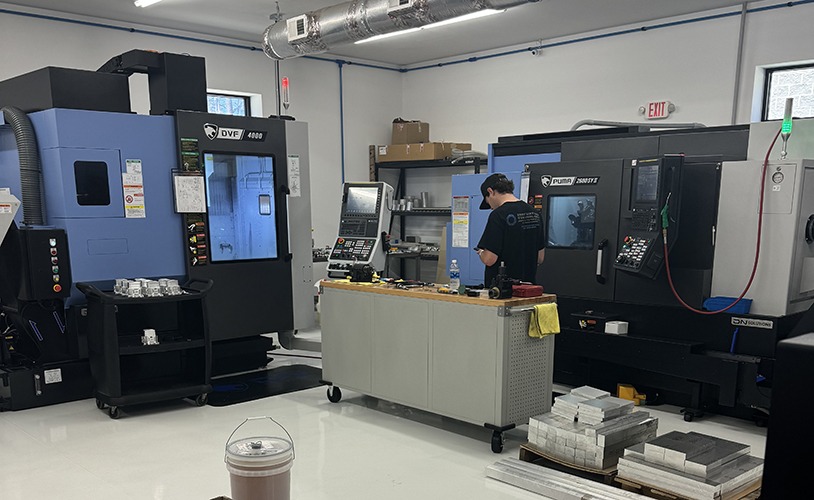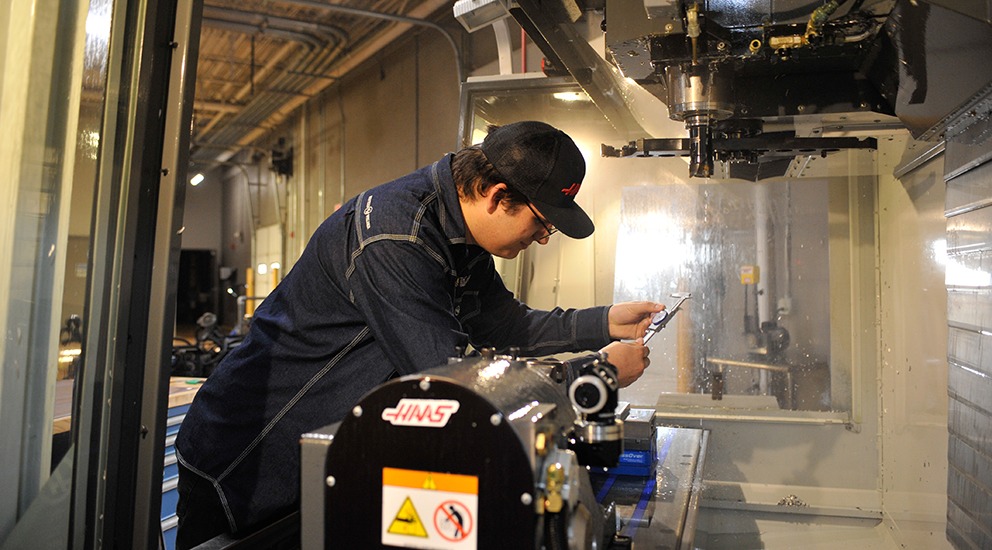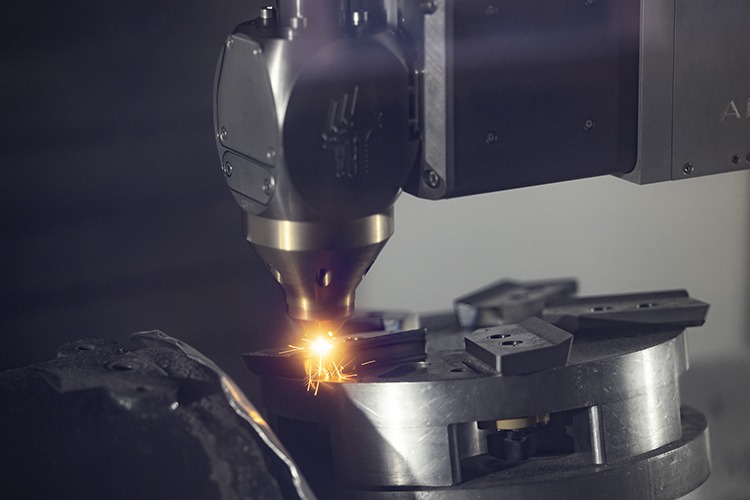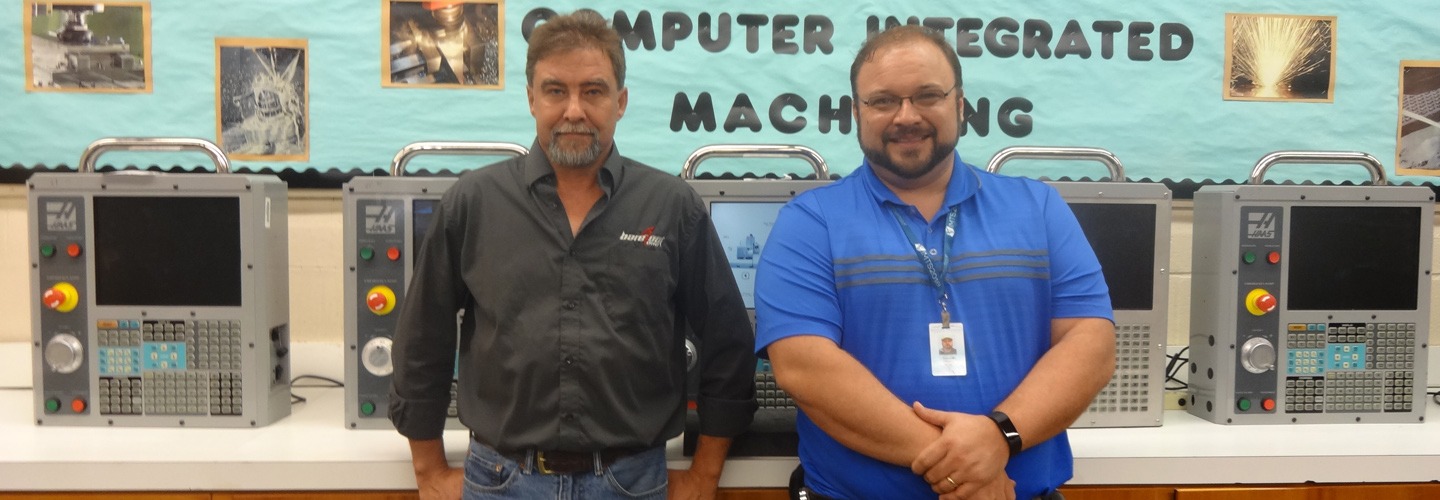
Community College Trains Future Manufacturing Professionals to Boost Local Economy
Nestled in the foothills of Western North Carolina’s mountain region, Burke County is known for its thriving tourism industry. But there is more to this picturesque area than mountains, forests, and natural lakes. Burke has a diverse economy bolstered by furniture, medical, chemical, textile, and machine component manufacturing.
Quick Facts
- Product Used: Educational Suite, Multiaxis
- Industry: Education
Nestled in the foothills of Western North Carolina’s mountain region, Burke County is known for its thriving tourism industry. But there is more to this picturesque area than mountains, forests, and natural lakes. Burke has a diverse economy bolstered by furniture, medical, chemical, textile, and machine component manufacturing.
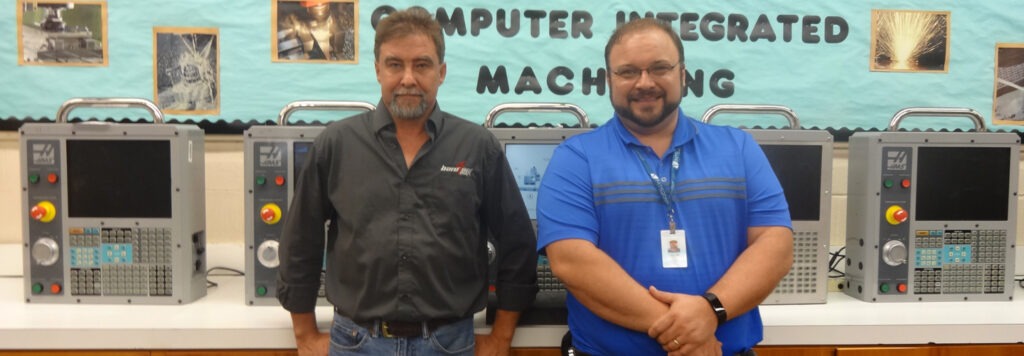
Project Details
- The Challenge: Educate and prepare budding machinists and CNC programmers to help bridge the skills gap in Burke County, North Carolina.
- The Solution: Mastercam
- The Benefits:
- Powerful, efficient Dynamic Motion technology sparks student interest in manufacturing.
- Mastercam milling projects draw active class participation on every assignment.
- Students master 3D milling, 3D machining, and Dynamic Motion toolpaths to prepare for their first jobs as CNC programmers and machinists.
Western Piedmont Community College in Morganton, North Carolina, offers more than 40 associate degrees to 7,000 students and adult high school diploma programs, including mechanical engineering technology and computer integrated machining technology degrees. Many students in the manufacturing programs are educated and trained to fill available job positions in Burke County.
“In our industry, employers are looking for students that can take a job and run with it,” said Brandon Hensley, Western Piedmont Community College department head of Engineering. “That means knowing the ins and outs of how the machine works, not just running a machine.”
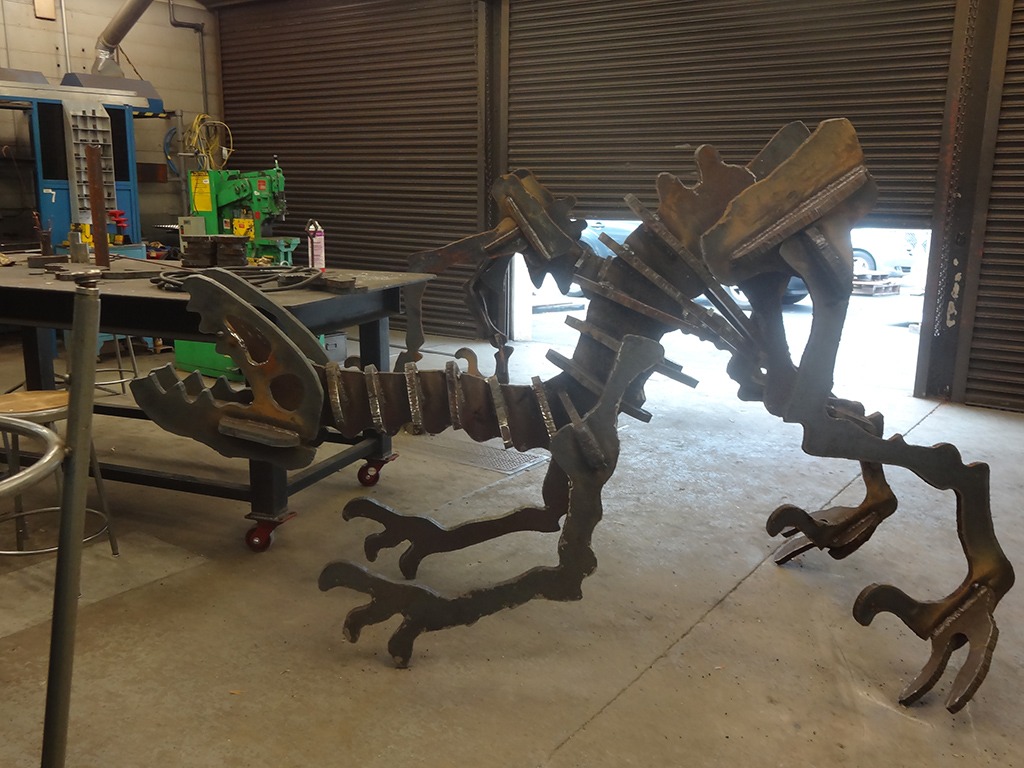
To keep machines running smoothly, Western Piedmont’s facility is outfitted with Mastercam 2018 from CNC Software, Inc. The CAD/CAM software is updated every two years to keep pace with textbooks. Hensley holds off on teaching Mastercam until the last semester of each school year to ensure that students are well versed in running machines, programming, and understanding code.
“On my first day of teaching a Mastercam class, I bring a nice little compilation video of all sorts of machine crashes,” said Hensley. “I try to reinforce the idea that the CAM software is another tool for their toolboxes. It’s not a miracle that works on everything but, if given the right tools, students can be much more efficient and thorough.”
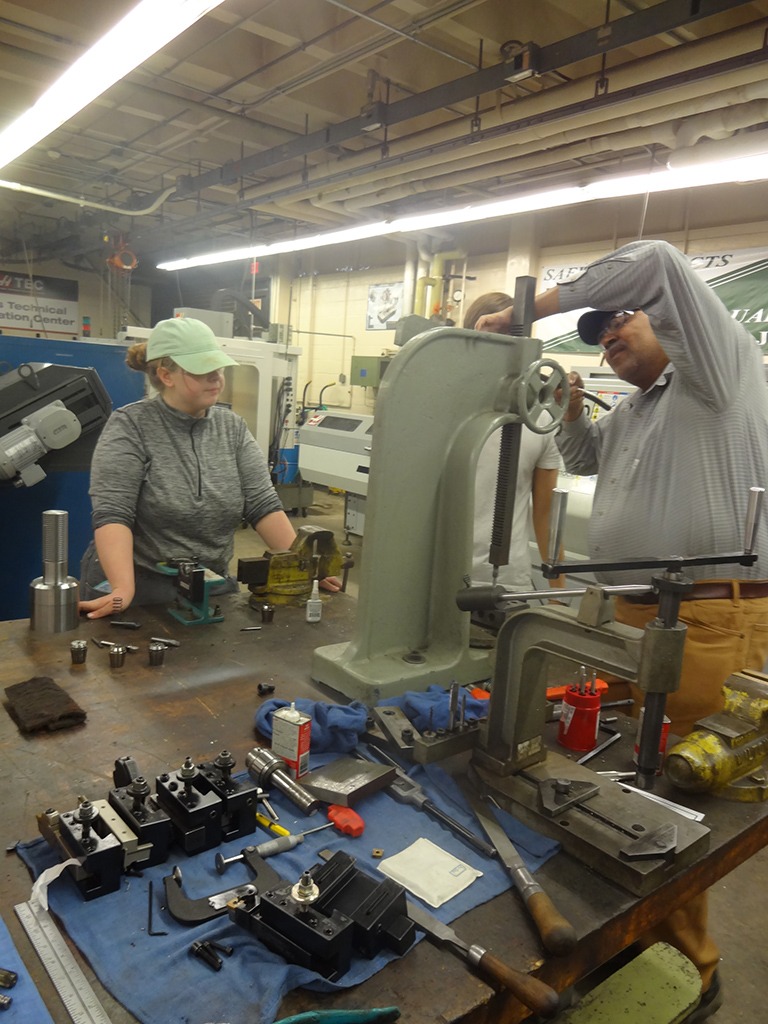
Hensley’s students have an in-depth understanding of classroom texts and online materials to ensure that, before beginning any 3D or multiaxis work, they understand how to create part geometries. For many WPCC graduates, their first jobs will require operating either a 2- or 3-axis CNC machine, so after the first half of the semester, lessons focus on 3D milling, 3D machining, and Dynamic Motion toolpaths. Not surprisingly, Western Piedmont students take an instant liking to Dynamic Motion technology.
“We’ll just blast chips everywhere and then get awe and amazement out of the students,” shared Hensley. The school is a member of the Haas Technical Education Center (HTEC) Network.
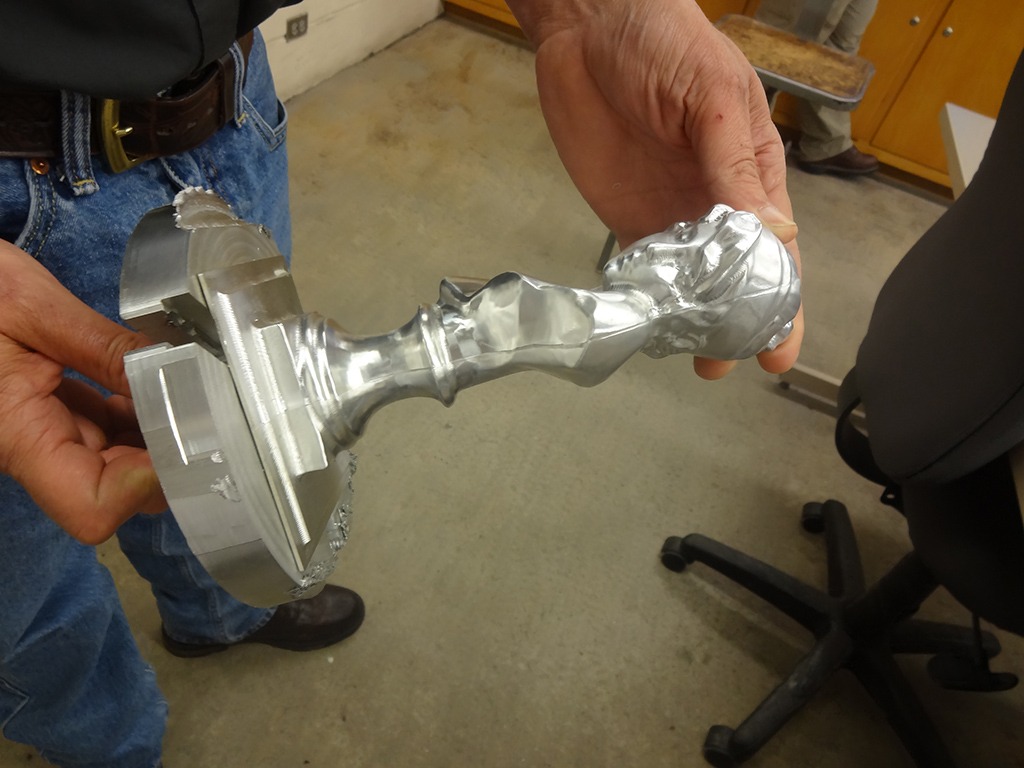
Hensley’s Mastercam class is a requirement for machining students and an elective for mechanical engineering technology students. For a final project, students create entire chess set on turning centers. Hensley explained that this choice of machine is influenced by the fact that it is difficult to find projects that interest students and require C-axis machining. Milling is a different story. Day-to-day projects keep student interest piqued, garnering active class participation on every assignment, including those that require 5-axis machining.
Current enrollment in WPCC’s machining program is lower than usual due to local plant shutdowns, including Caterpillar, Inc., which closed its Morganton precision engine components manufacturing facility in 2017.
“My program specifically has been recovering from that,” said Hensley of the shutdown. “But we have full cooperation with Burke County public schools and Work in Burke, the Burke County development campaign, as well as local industry.”
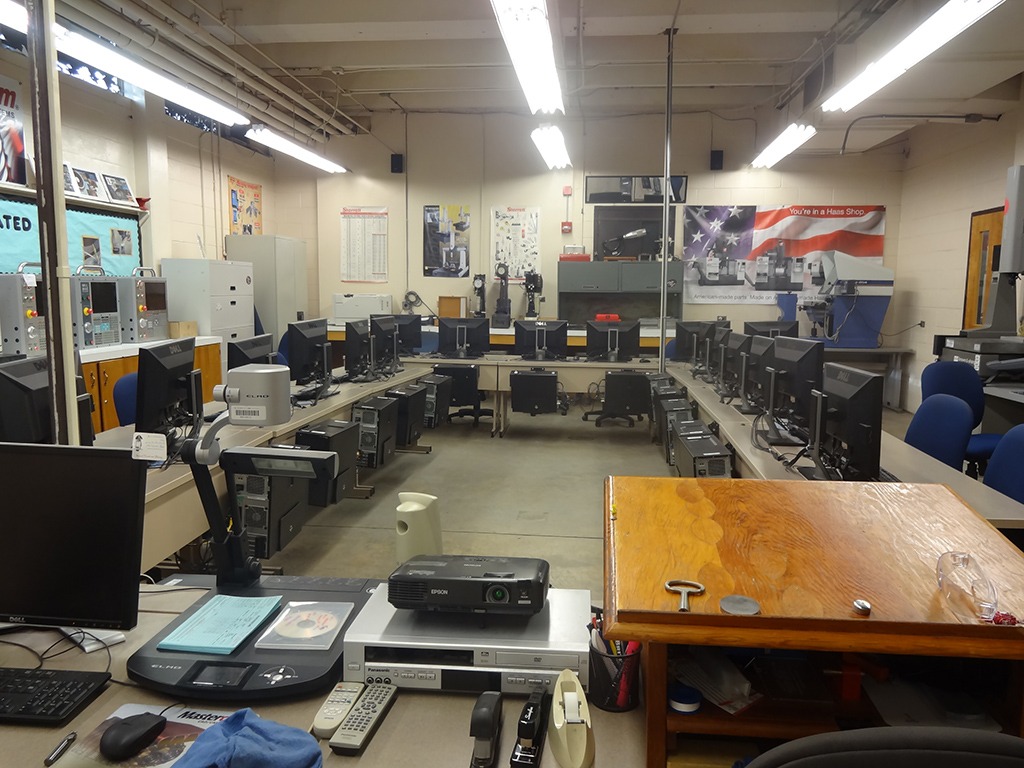
Work in Burke educates students and their parents about available job opportunities within the county and the required career training. The program helps high school and community college administrations and local industry present a complete package to incoming and prospective students.
“Now, we’re not necessarily just a community college trying to recruit students into our program, we are part of the package that is presented to students to help them land good, high-paying jobs in our area,” said Hensley. “We are really concerned with the quality of the machinist that we’re putting out. It’s not about showing up for work and making production quotas.”
Larry Thompson, Western Piedmont Community College instructor of computer integrated machining technology, adds that in his Machinery class, he teaches students the basics, like general machining principles and how to sharpen drill bits and tools. “They carry that knowledge on when they actually run the machines,” he said.
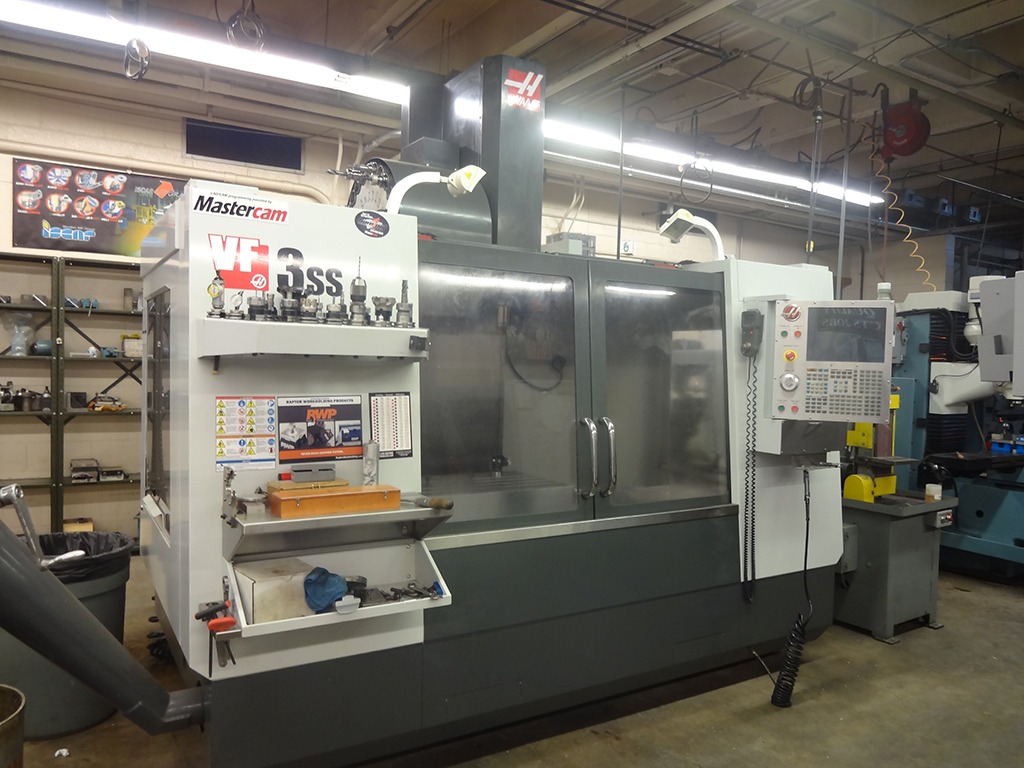
In addition to Work for Burke, another source that Hensley, Thompson, and their faculty rely on is Barefoot CNC, located nearby in Morganton. The Mastercam Reseller lends support to WPCC whenever called upon. Before he launched his own company, Barefoot CNC President and CEO Jimmy Wakeford worked in furniture manufacturing and was a former CNC machining instructor at Western Piedmont Community College.
“Jimmy works extremely well with all the community college folks,” said Hensley. “He is probably the best friend that my program has. I have nothing but positive things to say about working with Jimmy and the boys over there at Barefoot.”
Despite plant shutdowns in North Carolina, the state is home to many large manufacturing companies. “All of these companies are looking for employees,” said Wakeford. “In North Carolina, we have 100 percent job placement for students that want to get jobs, and most of them have jobs before they graduate.”
For many years, all Western Piedmont Community College graduates in the Computer Integrated Machining Technology Program found jobs in their industries. Learning the manufacturing trade does not prevent students from attending big schools, getting big job titles, and earning big paychecks, suggested Hensley. In fact, it helps them.
“If you’re going to attend engineering school, pick up a trade-in high school, work yourself through college,” he added.
With the help of Mastercam, Western Piedmont Community College will continue to prepare Burke County’s next generation of engineers, machinists, and CNC programmers.
Customer Quote
“In our industry, employers are looking for students that can take a job and run with it. That means knowing the ins and outs of how the machine works, not just running a machine.”
—Brandon Hensley, Department Head of Engineering, Western Piedmont Community College, Morganton, NC
Reseller Quote
“Jimmy (Wakeford) works extremely well with all the community college folks. He is probably the best friend that my program has. I have nothing but positive things to say about working with Jimmy and the boys over there at Barefoot.”
—Brandon Hensley, Department Head of Engineering, Western Piedmont Community College, Morganton, NC
